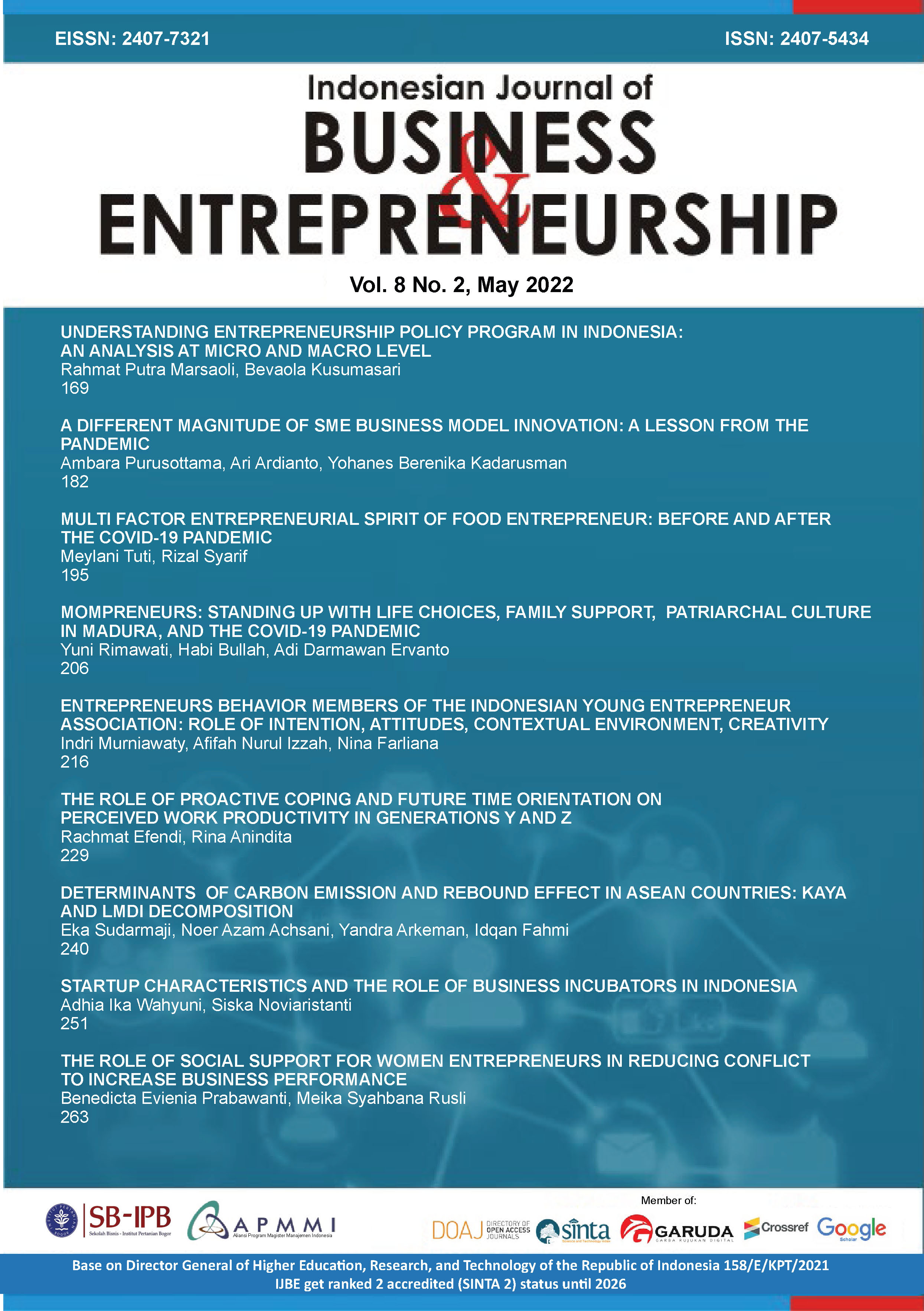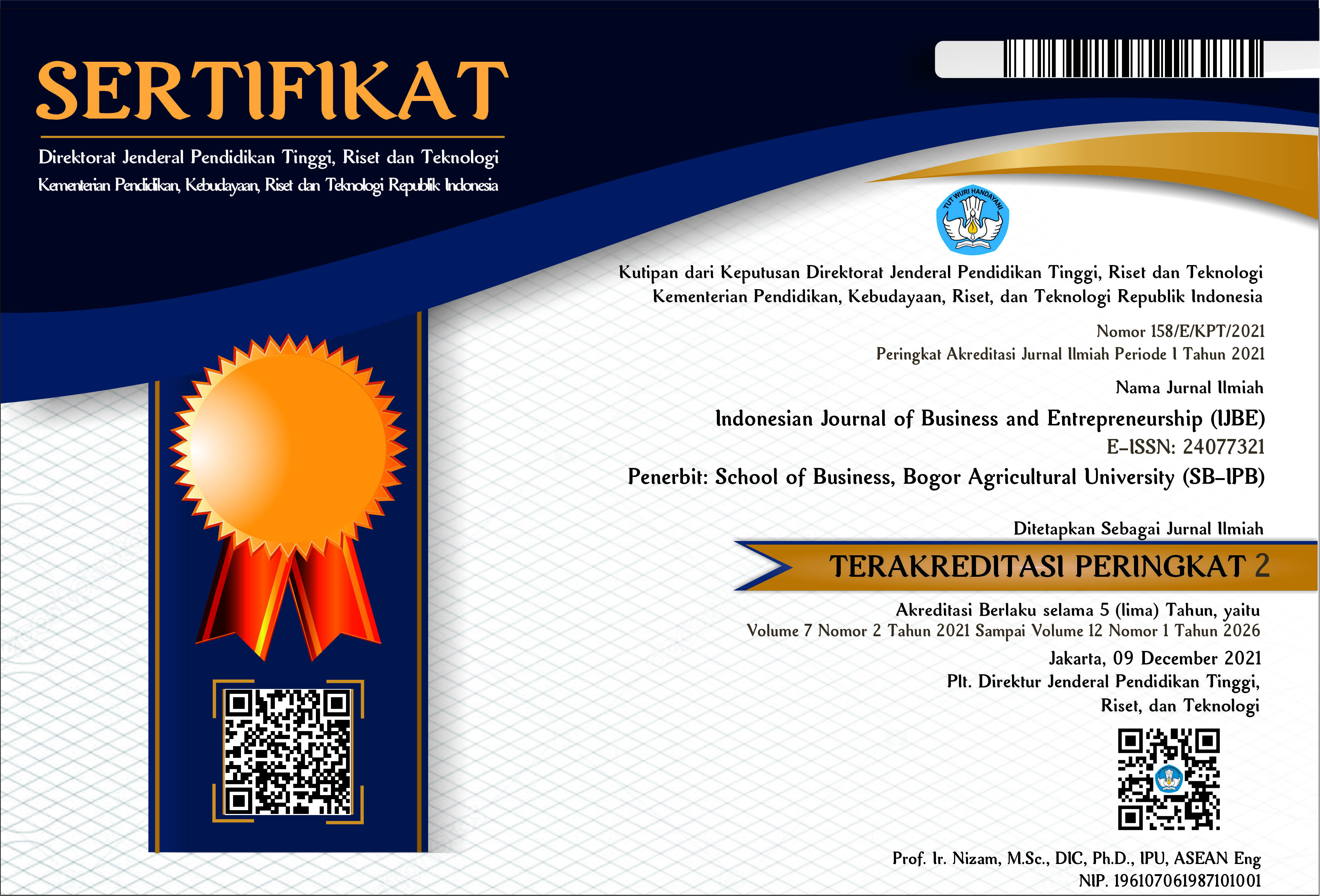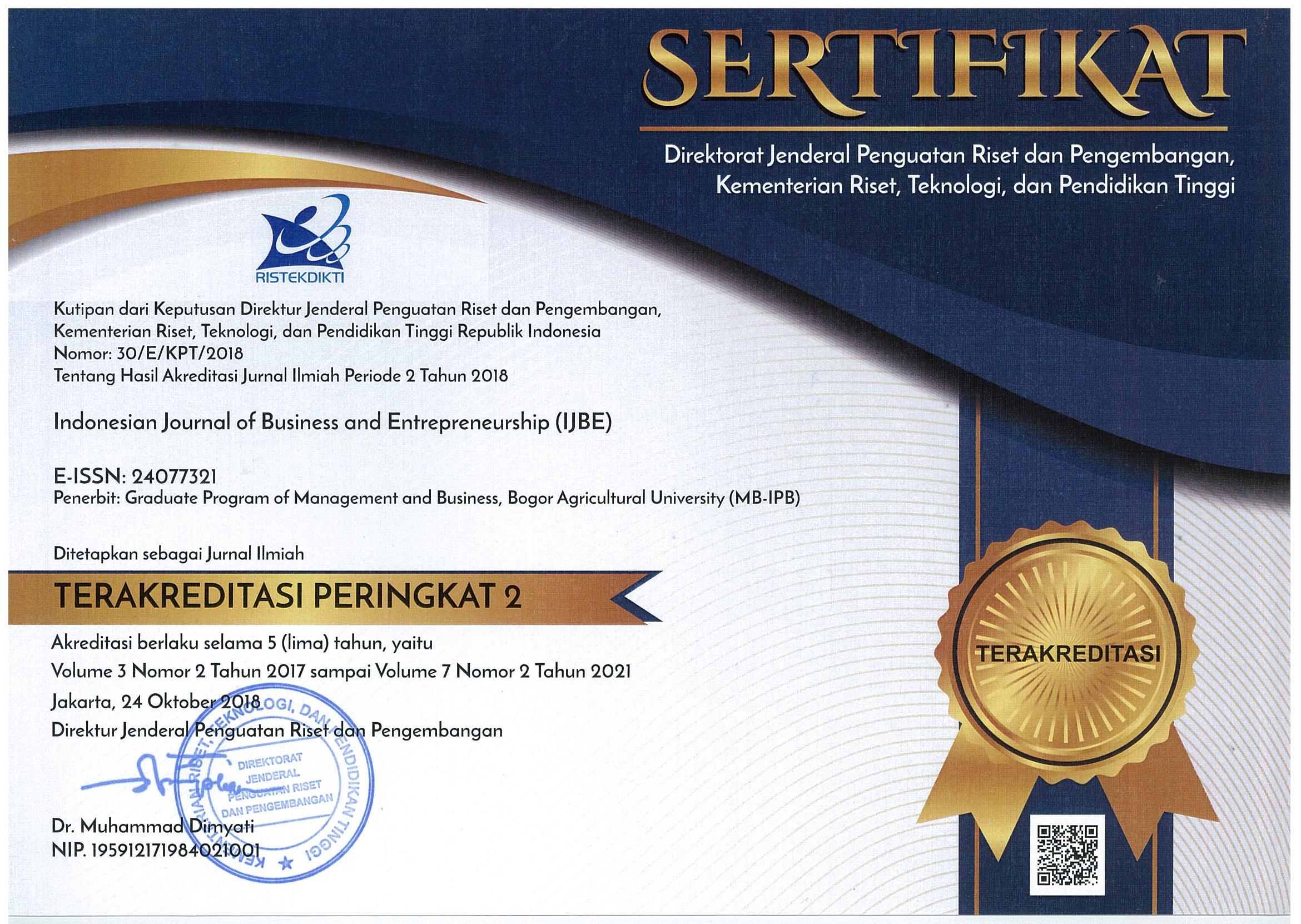The Role of Proactive Coping And Future Time Orientation on Perceived Work Productivity in Generations Y and Z
Abstract
This study aims to determine the role of proactive coping and future time orientation towards perceived work productivity for millennials and post-millennials during conditions before and during the Covid-19 pandemic, as well as explore productivity models by Gen Y and Z during the Covid-19 pandemic. The data analysis method used is logistic regression analysis by distributing questionnaires to 400 employees who work in the oil and gas industry in the Greater Jakarta area in September-November 2021 as research samples. The results showed that proactive coping had an effect on future time orientation, future time orientation had an effect on perceived work productivity, proactive coping had an effect on perceived work productivity, Generations Y and Z moderated the relationship between proactive coping and future time orientation, and Generations Y and Z did not moderate the relationship. between future time orientation and perceived work productivity.
Keywords: proactive coping, future time orientation, perceived work productivity, millennial, covid-19









